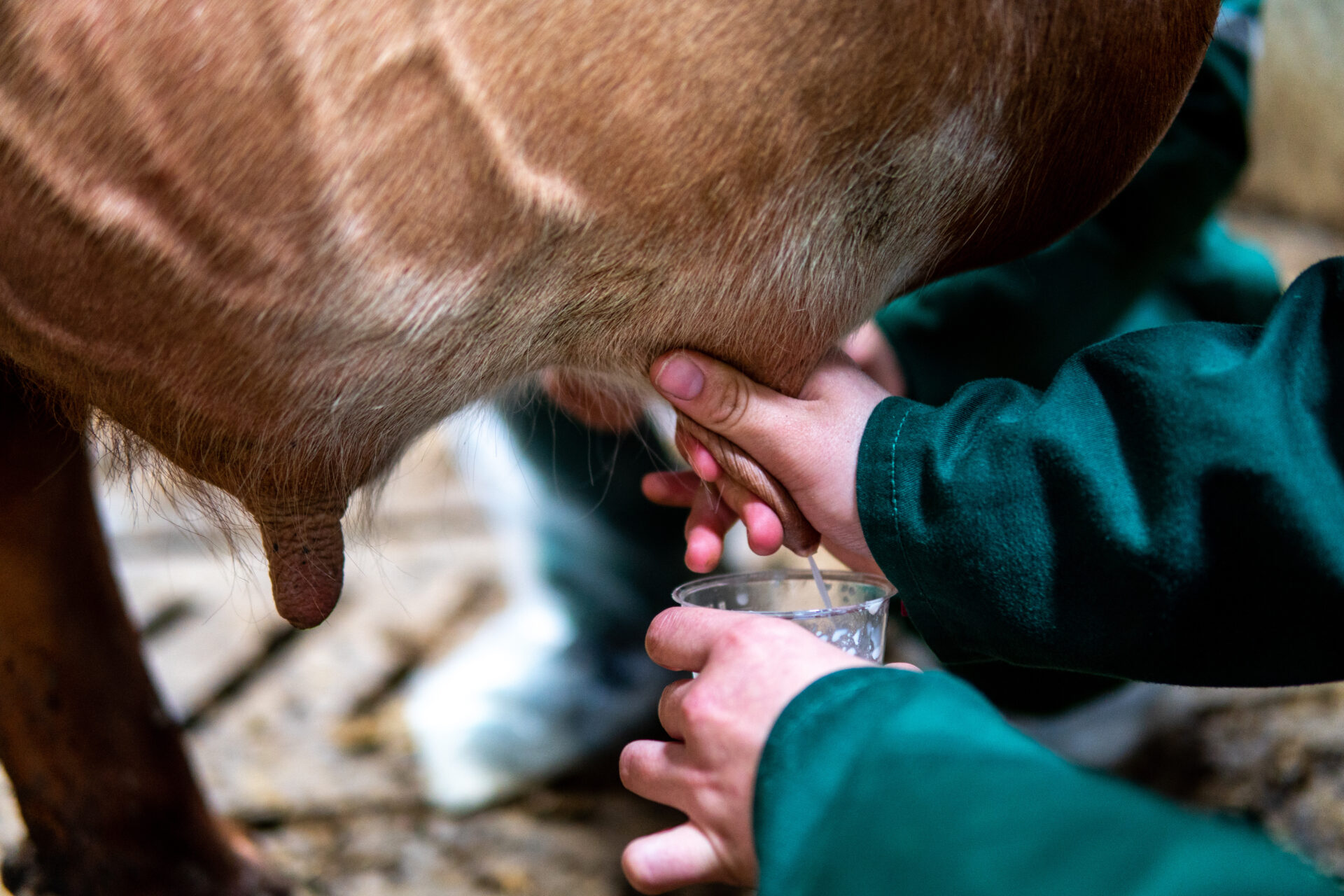House Bill 4911 removes the restrictions on the sale of raw milk and permits the sale of raw milk as long as the containers are clearly labeled as ungraded raw milk along with the seller’s name and date of production.
The practice of “herd sharing” has been legal in West Virginia since 2016. A herd share lets people enter agreements to share milk-producing animals and drink raw milk.
According to Commissioner of the West Virginia Department of Agriculture, Kent Leonhardt, his department enforces herd-sharing rules.
“And there was rules that the Department of Agriculture had to enforce,” Leonhardt said. “And so those that was going along swimmingly, but there’s still a faction of folks that want to consume raw milk. They don’t want a portion of a cow, they want just to buy it, you know, by the quart, by the gallon, and not have to own a piece of the cow.”
Leonhardt said in previous years, the West Virginia Legislature moved bills surrounding the sale of raw milk, but those bills required fiscal notes from the Department of Agriculture.
“This time, they put a bill through with no requirements at this point in time on the Department of Agriculture,” Leonhardt said. “And so the Department of Agriculture does not have a responsibility in this bill.”
Herd sharing will still be an option, but the bill allows farmers to sell raw milk directly to consumers.
“It has to have certain labeling requirements,” Leonhardt said. “So the consumer knows what they’re getting. And that’s been a position all people have a right to choose. But they need to be aware of what they’re consuming.”
House Bill 4911 faced pushback from Democratic lawmakers concerned about the health impacts of drinking unpasteurized or raw milk.
“But the bill passed kind of overwhelming in the legislature. There was only a couple of folks that voted against it,” Leonhardt said. “And generally, that was either on a legal side or a medical side of things.”
Milk bought in a grocery store in West Virginia has been pasteurized, whereas raw milk has not.
Marie Krause, a dairy scientist and associate professor at West Virginia University’s (WVU) Davis College of Agriculture, said pasteurization is a process that removes pathogens and viruses from milk.
“If you’re talking about big dairy processing plants, like the milk you can buy in the grocery store,” Krause said. “Basically, that has been raised to a temperature of 161 degrees Fahrenheit for 15 seconds. So it’s a high temperature but short time, but that time, and that temperature is enough to kill major pathogens, and also viruses such as the bird flu, or the H5N1 virus. And by doing that, you basically minimize the risk of getting a foodborne disease from consuming milk.”
Another process grocery store milk goes through is homogenization.
“Homogenized just means that you basically disperse the fat molecules in the milk,” Krause said. “So when you buy milk in the grocery store, the fat doesn’t rise to the top of the container.”
Krause said while some argue there are benefits to drinking raw milk, she has found none in her studies.
“There really are no health benefits to consuming raw milk versus pasteurized milk,” Krause said. “We do know that some of the vitamins that you find in milk, the content of those minor vitamins, is reduced by pasteurization, but not to a degree where it affects the nutritional value of milk.”
But another factor is worrying detractors of raw milk: Bird flu is showing up in cattle herds across the county.
In April, testing conducted by the Food and Drug Administration (FDA) on pasteurized, commercially purchased milk found genetic evidence of the H5N1 bird flu virus. But, that genetic evidence had been killed by the pasteurization process.
“However, the CDC has also collected milk samples in grocery stores across the U.S. and they have found fragments of the virus in that milk so that means that you know milk is going into milk processing plants from cows that shed the virus in their milk,” Krause said. “So they might not be sick but they’re still shedding the virus and pasteurization will kill that virus so there’s no risk associated with drinking milk that you buy in the grocery store.”
So far, the U.S. Department of Agriculture (USDA) has confirmed infections of 34 herds in nine states: Texas, Kansas, Michigan, New Mexico, Idaho, Ohio, South Dakota, North Carolina and Colorado.
On April 24, 2024, the USDA issued a federal order to limit the movement of lactating dairy cattle.
“We were getting ready to put a restriction on the lactating cows, dairy cows, moving into the state, but the USDA put a stop to that, prior to us implementing our rule,” Loenhardt said. “We are allowed to do certain things under statute to protect the health of the citizens and the herds and the livestock of the state of West Virginia.”
Leonhardt said pasteurization does kill the bird flu.
“I want to make sure that the citizens understand that work,” Leonhardt said. “The Department of Agriculture is watching it. We’re aware of it. And we’re doing everything within our authority and powers to make sure the citizens eat from a safe and healthy food supply.”
At the time of this reporting, no cases of avian flu have been found in West Virginia cattle.
Appalachia Health News is a project of West Virginia Public Broadcasting with support from Marshall Health.
